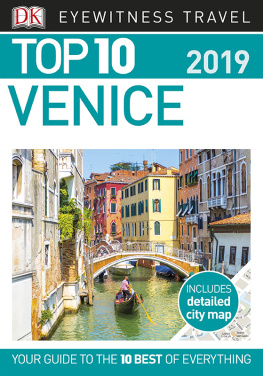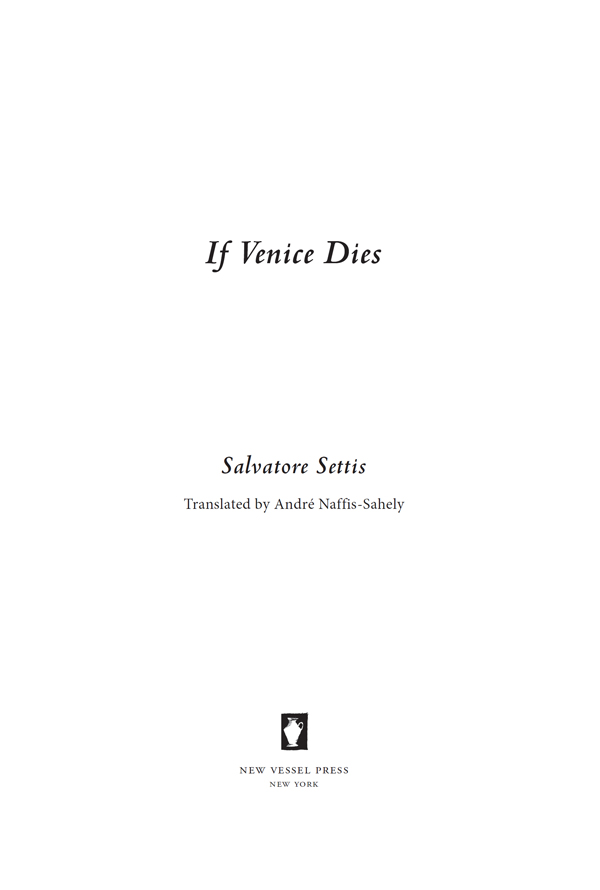
IF VENICE DIES

www.newvesselpress.com
First published in Italian in 2014 as Se Venezia muore .
Copyright 2015 Salvatore Settis. Published by arrangement with
Marco Vigevani & Associati Agenzia Letteraria.
Translation Copyright 2016 Andr Naffis-Sahely
The translation of this work has been funded by SEPS
SEGRETARIATO EUROPEO PER LE PUBBLICAZIONI SCIENTIFICHE

Via Val dAposa 7 - 40123 Bologna - Italy
All rights reserved. Except for brief passages quoted in a newspaper, magazine, radio, television, or website review, no part of this book may be reproduced in any form or by any means, electronic or mechanical, including photocopying and recording, or by any information storage and retrieval system, without permission in writing from the publisher.
Cover design: Liana Finck
Book design: Beth Steidle
Library of Congress Cataloging-in-Publication Data
Settis, Salvatore
[Se Venezia muore. English]
If Venice Dies/Salvatore Settis; translation by Andr Naffis-Sahely
p. cm.
ISBN 978-1-939931-37-5
Library of Congress Control Number 2016902102
I. Italy Nonfiction
Advance Praise for
If Venice Dies
An impassioned plea that every lover of Venice, urban planner, architect, and cultural historian should read.
KIRKUS REVIEWS (Starred review)
A chilling account of the slow agony of Venice as illustrative of a global consumerist epidemic. Richly documented and imbued with deep angst about this supreme urban creation.
PHILIPPE DE MONTEBELLO, former director of
the Metropolitan Museum of Art
Anyone interested in learning what is really going on in Venice should read this book.
DONNA LEON, author of
My Venice and Other Essays and Death at La Fenice
This book valiantly shows why Venicecrossroads of civilization, art and commerce, eternal place of lovecannot be allowed to perish.
DIANE VON FURSTENBERG, Vice Chairman,
Venetian Heritage Council
Settis shows how the tragedy of Venice could happen to any city which has a past. Its a powerful polemic.
RICHARD SENNETT, author of
The Fall of Public Man and Professor of Sociology,
New York University and the London School of Economics
Venice is indeed unique but it stands for all cities in this eloquent, furious blast against the commodification of our planet and the relentless destruction of human communities by the mentality of markets.
ROGER CROWLEY, author of
City of Fortune: How Venice Ruled the Seas
An elegant indictment of the challenges Venice faces from todays rapacious economic environment. Settis offers an ethical prescription for re-imagining and resuscitating the historical uniqueness of Venice and Venetian life.
ERIC DENKER, coauthor of
No Vulgar Hotel: The Desire and Pursuit of Venice and
Senior Lecturer, National Gallery of Art
A lament for the day-by-day destruction of great beauty full of anger and disappointment at what the author sees as the moral bankruptcy of Italy today.
THE ART NEWSPAPER
The vision of Settis is particularly gloomy and pessimistic, but there is still hope.
CORRIERE DELLA SERA
Salvatore Settis wants to curb the sellout of cities Balancing sharp intellect and moral indignation, lucid writing and impassioned argument, his polemic makes for captivating reading.
FRANKFURTER ALLGEMEINE ZEITUNG
Settiss analysis extends to all cities. Only active citizenship can save them from the greed of real estate speculators.
DESMOND OGRADY, former European editor of
The Transatlantic Review and author of The Road Taken
With his book, Settis has clarified what conservationism and the protection of our cultural heritage should mean.
IL MANIFESTO
Acknowledgments
I would like to thank the following people for their suggestions, help, and criticism during the writing of this book: Andrea Bosco, Donatella Calabi, Maria Luisa Catoni, Anna Fava, Lucia Franchi, Claudia Ferrazzi, Denise La Monica, Enrica Zaira Merlo, Tomaso Montanari, Myriam Pilutti Namer, Alessandro Poggio, Filippomaria Pontani, Federica Rossi, Antonella Tarpino, Marco Vigevani, Marina Zanazzo and my sons, Andrea and Bruno.
As ever, my wife, Michela, a native of the Veneto, as well as my life partner, was my most trusted, patient, and perceptive reader, and thus this book is dedicated to her.
Table of Contents
If Venice Dies
CHAPTER I

Forgetful Athens
Cities tend to die in three ways: when a ruthless enemy destroys them (like Carthage, which Rome razed in 146 BCE); when foreign invaders violently colonize them, driving out the indigenous inhabitants and their gods (in the case of Tenochtitlan, the capital of the Aztecs, when the Spanish conquistadores destroyed it in 1521 to build Mexico City atop its ruins); or, finally, when their citizens forget who they are and become strangers to themselves and thereby their own worst enemies without even realizing it. This happened to the city of Athens, which after experiencing the glory of its classical periodthe Parthenon marbles, Phidiass sculptures, and the cultural and historical events shaped by Aeschylus, Sophocles, Euripides, Pericles, Demosthenes, and Praxiteleslost its political independence (first falling under Macedonias sway, then Romes) and later its cultural initiative but also became oblivious to its own identity.
Overwhelmed by a staid, facile classicism imparted to us early on at school, we all too often think of Athens as having remained frozen in the whiteness of its marbles for centuries until it finally blossomed anew, almost as though it had stirred from a deep slumber, following the Greek War of Independence in 1827. Yet nothing could be further from the truth: when Michael Choniates, who hailed from Constantinople, was appointed archbishop of Athens in the late twelfth century, he was astonished by the ignorance of the Athenians, who were unaware of their citys former glories, and werent able to tell foreign visitors about their still intact temples, nor could they point out the places where Socrates, Plato, and Aristotle had preached their doctrines.
Throughout its incredibly long Middle Ages, the Parthenon in that forgetful Athens had been converted into a church, its walls festooned with icons and other religious paintings, while its interiors reverberated with liturgical chants and the scent of incense hovered in the air. Following the Fourth Crusade in 1204, it became a Latin cathedral, and was repeatedly looted by the Venetians and Florentines, while the Athenians themselves didnt lift a finger to defend it or bother to raise a voice in protest and remember its history and glory. When Athens was conquered by the Ottoman Turks in 1456and the Parthenon-Church was turned into a mosquethe city even lost its name. What remained was a wretched village with a few huts scattered among the ruins, while the local population, which had been reduced to a few thousand, had started to call the city Satinesor Sethinesa bastardization that Rome was never subjected to. Nevertheless, the Athenians oblivion had its roots in much earlier times. Around the year 430 CE, the Neoplatonic philosopher Proclus Lycaeus, who lived close to the Acropolis, tells us that he was visited in a dream by Athenathe goddess of the Parthenonwho, having been driven from her temple, had come to seek his hospitality. This nostalgic dream not only perfectly encapsulates the end of a religion and the destruction of its monuments, but ultimately the eclipse of a culture and its inhabitants loss of self-awareness.

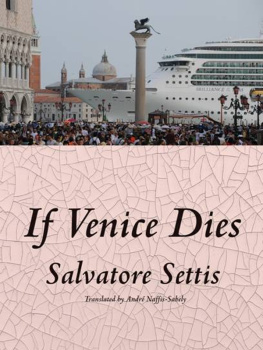
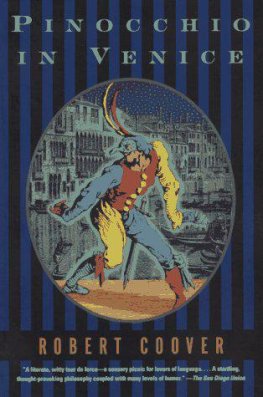


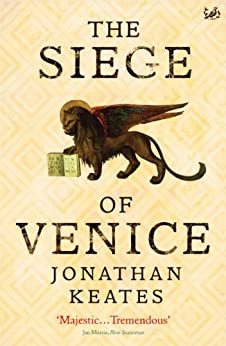
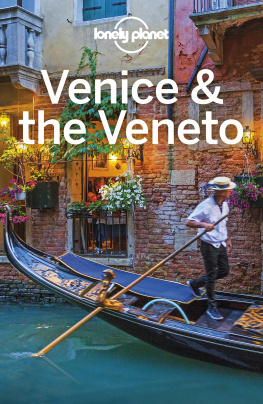
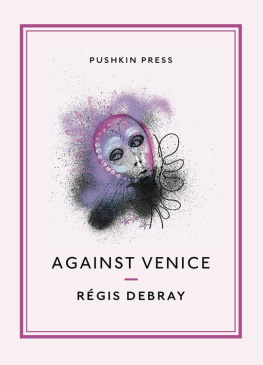
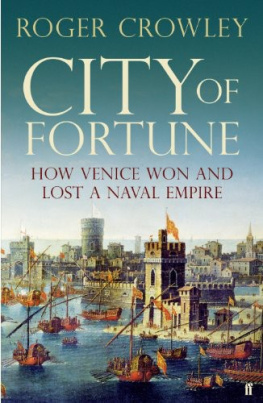
![Bosworth - Italian Venice: a history[Electronic book]](/uploads/posts/book/194557/thumbs/bosworth-italian-venice-a-history-electronic.jpg)
